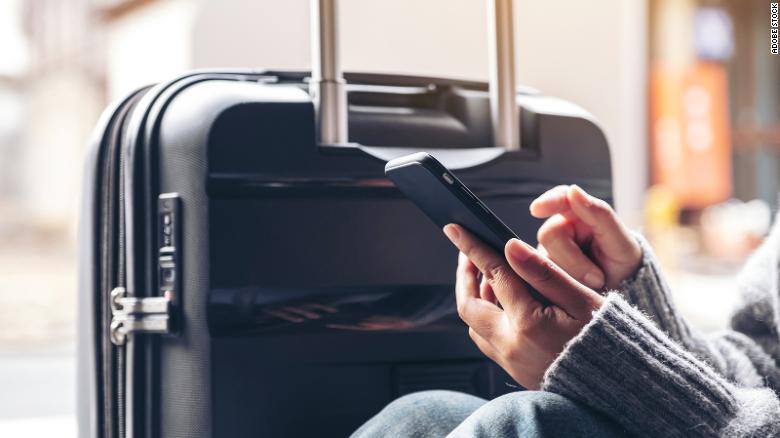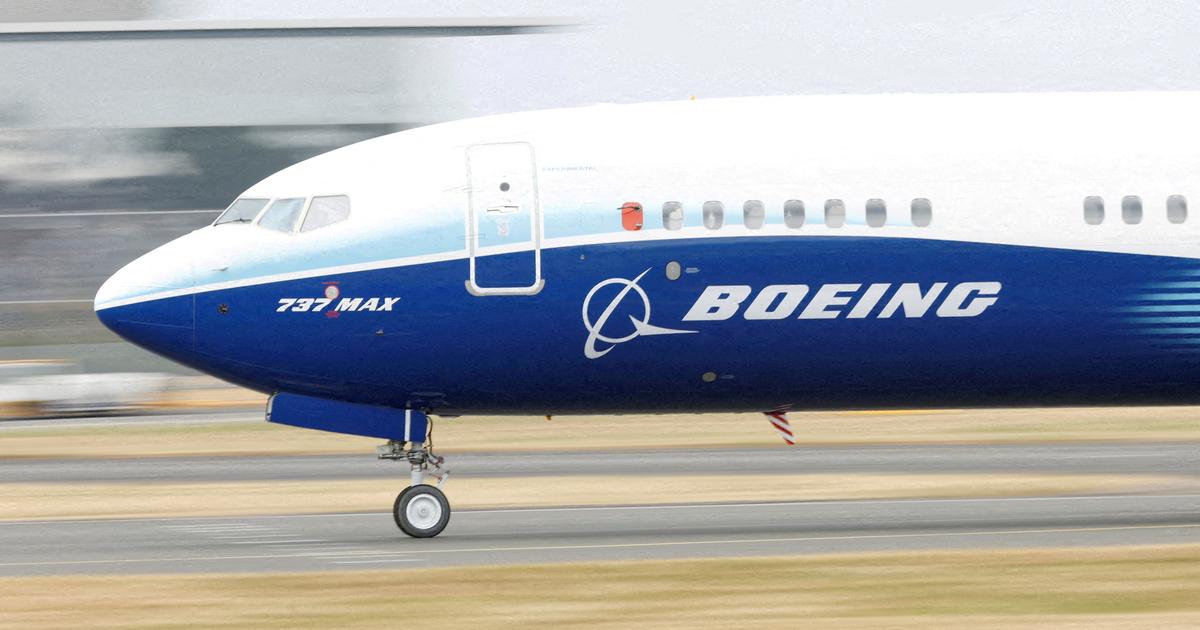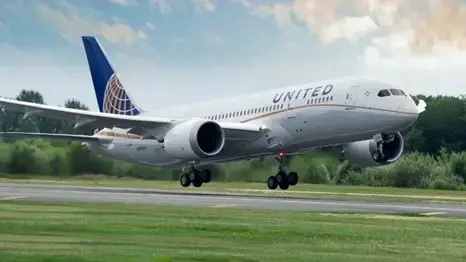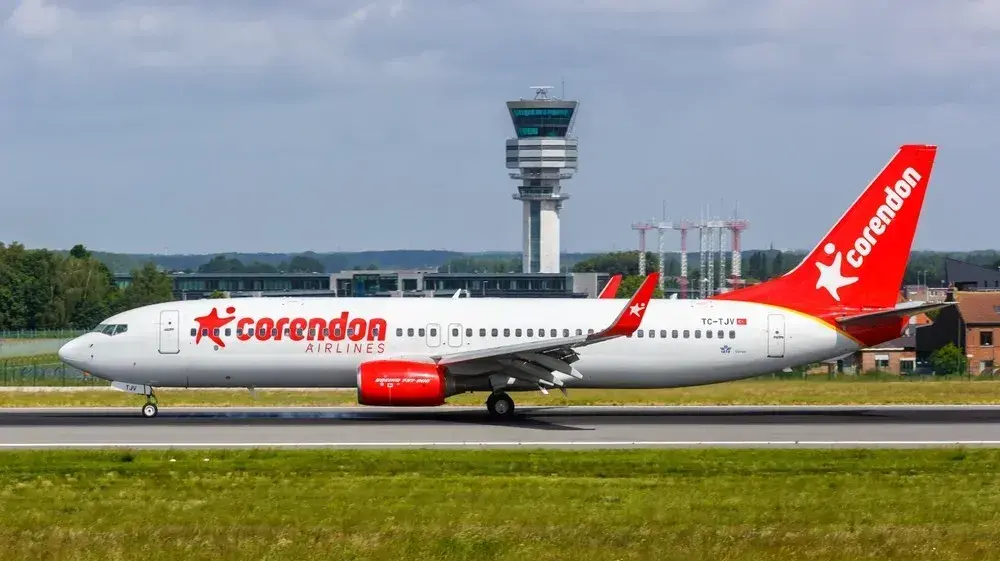The setbacks facing the US with 5G technology 1:04
New York (CNN Business) --
Trying to roll out expanded wireless service in the United States has been a bit of a chore.
The aviation industry and transportation regulators are concerned about new 5G antennas interfering with a key type of aircraft altimeter that is essential for landing planes in bad weather.
But wireless carriers and telecom regulators say there is nothing to fear.
Authorities have been deadlocked for weeks.
And it all culminated this week with some major international airlines canceling some flights in the US, after regulators, telecom giants and airlines missed the deadline to reach an agreement.
AT&T and Verizon are now once again delaying their plans to turn on their new 5G antennas near certain airports.
Regulators are still looking at solutions.
And much remains to be clarified.
Emirates Chairman Sir Tim Clark told CNN on Wednesday that the airline was not aware of some of the potential 5G rollout issues until yesterday morning, calling the situation "one of the most criminal, absolutely irresponsible" that he has seen in his aviation career.
This is everything we know, and what we don't know, about the problem.
What exactly is the problem with 5G?
Telecommunications companies have rolled out 5G networks in various locations across the United States in recent years, bringing the next generation of cell phone data speeds.
But on Wednesday, Verizon and AT&T activated their C-band 5G networks, an important set of radio frequencies that will power the Internet as we know it.
Unfortunately, C-band is close to the frequency band used by aircraft radar altimeters, an instrument that tells pilots how high their plane is off the ground and is crucial for landing planes in low visibility conditions. .
advertising
The Federal Communications Commission auctioned off C-band spectrum to US wireless carriers last year: an $81bn sale.
Why didn't the US anticipate 5G like Europe?
2:45
But airlines have warned of dire consequences for transportation and the broader economy due to concerns that C-band technology could interfere with the radar altimeters pilots use to land in low-visibility conditions.
(Airlines estimated that 1,000 flight disruptions would occur each day after launch.)
On Tuesday, Emirates, Air India, All Nippon Airways, Japan Airlines, Lufthansa and British Airways announced changes to some flights, citing the problem.
Some have added return flights or changed planes.
International airlines seemed to have been caught off guard and had to act quickly due to the duration of these long-haul flights.
National carriers have also said they are monitoring the situation.
Airlines for America, a trade association, said in a statement Wednesday that "due to agreements reached yesterday by the White House with AT&T and Verizon [to delay the rollout of 5G at major airports], thousands of flights are taking off and landing safely at airports across the country.
The Federal Aviation Administration (FAA) said in its own statement that it had also authorized more aircraft to fly safely near 5G towers, but "flights at some airports may still be affected."
"Even with these approvals, flights at some airports may still be affected," the FAA said.
"The FAA also continues to work with manufacturers to understand how radar altimeter data is used in other flight control systems. Passengers should check with their airlines for the most recent flight schedules."
United Airlines said it anticipated "minor disruptions" on Wednesday but is "pleased that the Biden Administration has reached a compromise with AT&T and Verizon to avoid mass cancellations."
What is being done about it?
Transportation regulators were already concerned that the version of 5G that was scheduled to turn on could interfere with some aircraft instruments, and many aviation industry groups shared those fears, despite assurances from federal regulators that telecommunications and wireless carriers.
Aircraft manufacturers Boeing and Airbus also weighed in, warning Transportation Secretary Pete Buttigieg in a letter in December that the 5G rollout will cause interference that could "adversely affect the ability of aircraft to operate safely."
In December, the FAA issued an urgent order prohibiting pilots from using potentially affected altimeters around airports where low-visibility conditions would require them.
That new rule could prevent planes from reaching some airports under certain circumstances because pilots wouldn't be able to land using only instruments, and affects more than 6,800 US planes and dozens of planemakers.
Why are airlines worried about the implementation of 5G technology?
2:21
The aviation industry also made a last-ditch effort to get wireless carriers to further delay the rollout of 5G, which had already been delayed.
It was initially scheduled for December 5, 2021.
But the problem was never fully resolved.
That's how we got to this week's problem, with airlines struggling to reschedule or cancel flights.
Then AT&T, which owns CNN parent company WarnerMedia, and Verizon made last-minute commitments to delay rolling out 5G at some airports.
A White House official told CNN on Tuesday that the administration is talking with the FAA, the Federal Communications Commission (FCC), wireless carriers, airlines and aircraft equipment manufacturers to find a solution that would still allow 5G deployment without sacrificing flight safety.
But Faye Malarkey Black, director of the Regional Association of Airlines (RAA), which represents airlines serving largely rural areas of the United States, took to Twitter to voice complaints that the RAA has not been involved in none of the discussions.
It also posted that "0% of the regional airline fleet has been cleared to make low visibility landings at #5G affected airports if/when the weather drops below minimums. Good weather today is saving airlines." rural America from a serious disruption of air service.
The FAA only responded that it is "reviewing test data from altimeters used on regional jets."
During a press conference on Wednesday afternoon, President Joe Biden told reporters: "The question of whether or not we're dealing with 5G, we're not dealing with 5G. The fact is that they had two companies — two private companies... They have visible government regulation. So what I did was try as hard as I could to get the 5G folks to hang on and do what the airlines were asking for until they could modernize them over the years," he said, apparently referring to to the altimeters.
Faye Malarkey Black, however, struck a different tone in an interview with CNN.
He said what he found "baffling was all these kinds of victory dances about this deal: that it was a great deal and the crisis was averted. The crisis was not averted. The crisis was averted for urban centers."
Why is this happening in the US and not abroad?
Europe rolled out 5G without any impact on aviation, which is in stark contrast to the frenzy going on in the US.
The distinction lies in a few key technical details.
This is how Europe deployed the 5G network without affecting aviation
Wireless carrier companies in Europe launched a new 5G service in the spectrum range from 3.4 to 3.8 GHz. The United States is rolling out 5G service in a radio wave spectrum with frequencies between 3.7 and 3. 98 GHz, which is a faster range and a bit closer to the spectrum used by radar altimeters, which is between 4.2 and 4.4 GHz.
What you should know about the 5G network 3:36
And, according to the FAA, that's too close for comfort.
Other countries are also using other mitigation tactics to avoid interference, such as restricting the placement of 5G antennas near airfields and requiring them to tilt downward to limit potential interference with aircraft.
As for how to remedy the problems in the United States, Nicholas Calio, president and CEO of Airlines for America, weighed in on CNN: "The solution is basically to determine where the bandwidth is, the amount of energy used, the inclination of the antennas, the location of the antennas," he said.
"There are mitigations that can be implemented, it's just going to take time to do it. The fix can be almost immediate, tower by tower."
Whose fault is it?
That is not entirely clear.
AT&T and Verizon placed much of the blame on the Federal Aviation Administration in statements Tuesday.
"We are frustrated by the FAA's inability to do what nearly 40 countries have done, which is to safely implement 5G technology without disrupting aviation services, and urge it to do so in a timely manner," said Megan Ketterer, AT&T spokesman, in a statement.
Verizon said in a separate statement that "the FAA and our nation's airlines have not been able to fully resolve 5G navigation at airports, even though it is secure and fully operational in more than 40 other countries."
Emirates chairman Sir Tim Clark made no bones about what he sees as the problem, blaming the structure of the US system and saying "this is one of the most criminal and absolutely irresponsible situations" he has seen in the world. his career in aviation.
He added that the "risks and dangers" should have been evaluated.
5G technology worries commercial aviation 0:54
Which airports are affected?
We do not know.
When the FAA issued its order in December, it included a list of airports that would need to have 5G buffer zones.
But it's unclear whether AT&T and Verizon delayed 5G rollouts in all or some of those locations.
It's also unclear how long they plan to delay deployment or if changes to those antennas will ultimately need to be made before they can be turned on.
What else do we not know?
We still don't know exactly what is stalling all these negotiations.
Among the many voices at the table are the FCC, FAA, airlines, aircraft manufacturers, wireless carriers, and industry groups, and the nature of their current impasse is not entirely clear.
We don't know who asks what.
We do not know if more tests will have to be done.
And, perhaps most worryingly, we don't know when this will all be resolved.
CNN's Samantha Murphy Kelly, Charles Riley and Brian Fung contributed.
5G




/cloudfront-eu-central-1.images.arcpublishing.com/prisa/MQ62V24GUVHPRDNYKHSOUZO7ZE.jpg)




